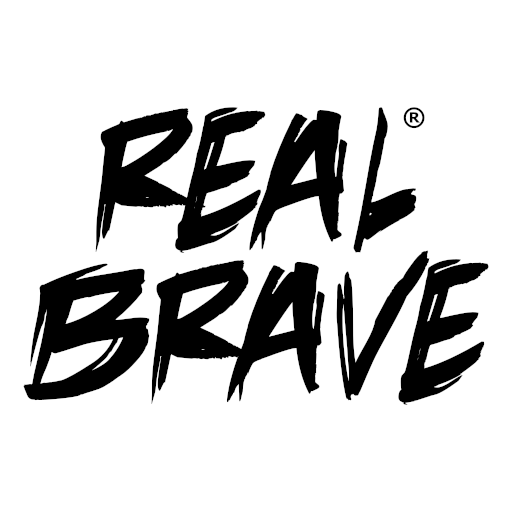How Music Acts as a Bridge for ADHD, Special Needs, and Learning Differences
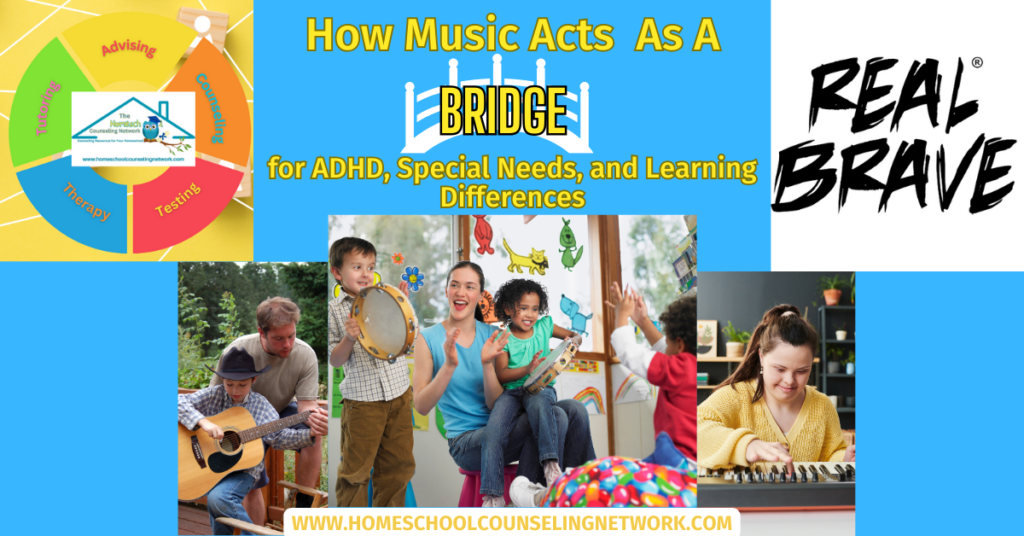
Music stands out as a universal language that transcends boundaries, embodying a power to connect, heal, and inspire. Its influence stretches beyond mere entertainment, reaching into the spheres of therapeutic intervention and educational support, particularly for individuals navigating the complexities of ADHD, special needs, and various learning differences. In this exploration, we delve into the harmonious world of music, uncovering its transformative potential and the myriad ways it serves as a bridge to a more inclusive and understanding society.
A Symphony of Benefits
The Rhythmic Anchor: ADHD and Music
For individuals with Attention Deficit Hyperactivity Disorder (ADHD), the world can often seem like a cacophony of distractions, with their minds playing the role of a radio, constantly flipping through stations without pause. Music, with its inherent structure and rhythm, acts as an anchor, providing a steady beat that can guide the mind to a state of focused calm. The repetitive elements of music, such as rhythm and melody, can enhance attention and improve concentration, making it a valuable ally in tasks that require sustained mental effort.
The Melodic Key: Unlocking Potential in Special Needs
The spectrum of special needs encompasses a wide array of challenges, each unique. Music, with its adaptable and versatile form, offers a key to unlocking the potential within each individual. For those with sensory processing issues, music can be tailored to soothe or stimulate the senses, providing a sensory experience that is both manageable and enjoyable. When it comes to communication difficulties, music becomes a non-verbal medium of expression, allowing for emotional and expressive exchanges without the barriers of conventional language.
The Harmonic Bridge: Learning Differences and Music
Learning differences often dictate a need for alternative approaches to education, and music emerges as a powerful tool in this context. It not only aids in the retention of information through mnemonic devices but also enhances cognitive skills such as memory, attention, and even spatial-temporal reasoning. By integrating music into the learning process, concepts become more engaging and accessible, paving the way for a deeper and more meaningful educational experience.
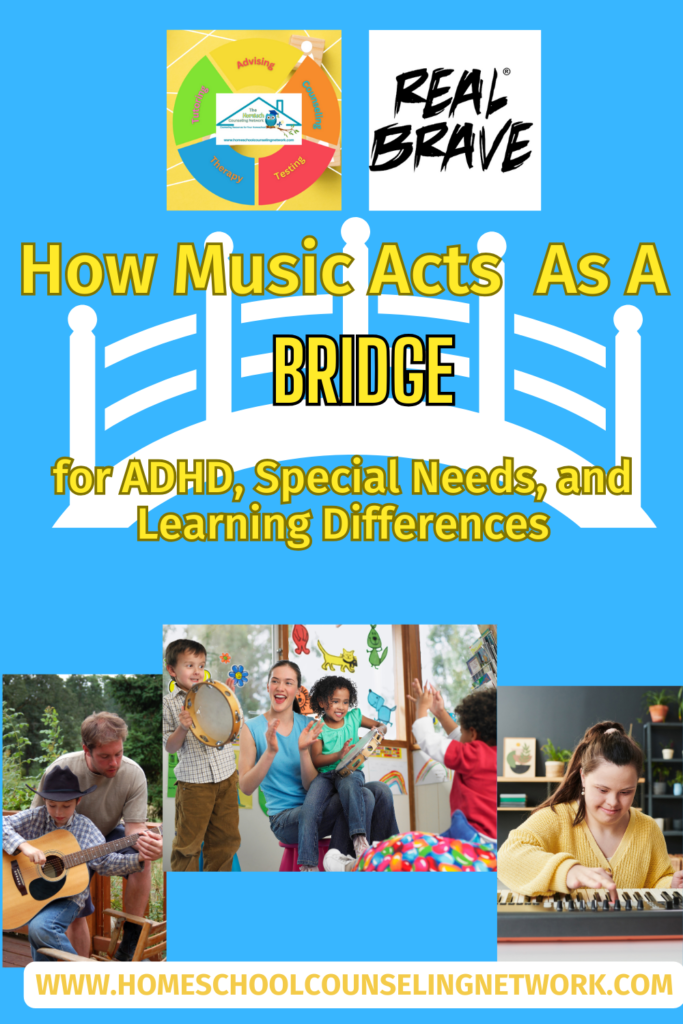
Practical Applications: Making the Connection
Music Therapy: A Guided Journey
Music therapy stands as a testament to the therapeutic potential of music, offering guided sessions that are tailored to the individual’s needs and goals. Through the use of various musical instruments and techniques, music therapists facilitate sessions that can improve social skills, enhance emotional well-being, and even promote physical rehabilitation.
Educational Strategies: Tuning into Learning
In educational settings, music can be strategically integrated into the curriculum to support students with ADHD, special needs, and learning differences. From using songs to teach mathematical concepts to incorporating rhythmic activities to improve literacy skills, the potential applications are as diverse as they are impactful.
Technology and Music: A Harmonious Pairing
The digital age has brought with it a plethora of tools and apps designed to harness the power of music for therapeutic and educational purposes. From apps that offer personalized music therapy sessions to software that uses music to improve reading skills, technology has significantly expanded the accessibility and reach of music’s benefits.
A Universal Language with Individual Impact
Music, in its essence, is a reflection of the human spirit – boundless, diverse, and profoundly impactful. For those with ADHD, special needs, and learning differences, it offers a unique avenue for connection, growth, and expression. As we continue to explore and embrace the therapeutic and educational potential of music, we pave the way for a more inclusive world where every individual has the opportunity to find their rhythm and sing their song.
The Crescendo of Community and Support
Beyond the individual, music has the remarkable ability to foster community and shared experiences. For individuals with ADHD, special needs, and learning differences, this aspect of music can be particularly empowering. Group music therapy sessions, choirs, and musical ensembles provide opportunities for social interaction, teamwork, and a sense of belonging. In these communal settings, music acts not only as a therapeutic tool but also as a social glue, bringing people together in a celebration of diversity and mutual support.
Family Harmony: Engaging Caregivers and Families
The impact of music extends to the families and caregivers of those with special needs and learning differences. Music can be a shared activity that strengthens bonds, facilitates communication, and provides a joyful respite from daily challenges. Engaging in musical activities together, whether it’s simply listening to music, singing, or playing instruments, can offer families a new avenue for connection and understanding.
The Role of Educators and Therapists
Educators and therapists play a crucial role in harnessing the power of music for individuals with special needs. By incorporating music into their teaching methods and therapeutic practices, they can create more inclusive and effective learning environments. Continuous professional development and collaboration with music therapists can enhance their ability to integrate music meaningfully into their work, ensuring that the benefits of music are accessible to all students.
The Future Symphony: Research and Innovation
The field of music therapy and the use of music in educational settings for individuals with special needs are areas ripe for research and innovation. Ongoing studies continue to shed light on the neuroscientific underpinnings of music’s effects, offering insights that can inform future practices. Furthermore, technological advancements promise new and innovative ways to personalize musical interventions, making them more accessible and effective for a wider range of individuals.
An Ode to Inclusivity and Understanding
Music, in all its forms, offers a powerful testament to the resilience and diversity of the human spirit. For individuals with ADHD, special needs, and learning differences, it provides a unique lens through which they can understand the world and be understood by others. As we continue to explore and embrace the myriad ways in which music can support, heal, and unite, we contribute to a more harmonious and inclusive society.
In this symphony of life, each individual’s melody is essential, and music ensures that no note goes unheard. By recognizing and utilizing the transformative power of music, we can all play a part in creating a world that celebrates differences and fosters an environment where everyone has the opportunity to thrive.
To wrap up, music transcends its traditional boundaries to become a powerful catalyst for positive change in the lives of individuals with ADHD, special needs, and learning differences. Its rhythm, melody, and harmony offer unique therapeutic benefits, enhancing focus, communication, and social skills, while providing a non-verbal mode of expression and connection. The communal aspect of music fosters a sense of belonging and shared experience, crucial for building supportive networks and communities.
As families, educators, and therapists continue to explore and integrate music into their approaches, the potential for transformative experiences grows. The ongoing research and technological advancements in music therapy and educational applications promise even more personalized and effective interventions in the future.
Ultimately, music embodies a universal language that speaks to the individuality and potential within each person, advocating for a more inclusive and understanding world. By embracing the diverse melodies of humanity, we can create a symphony of support, empathy, and empowerment for those with ADHD, special needs, and learning differences, ensuring that every individual has the opportunity to find their rhythm and share their unique song with the world.
Who Is Real Brave Audio?
Author: Daniel Powers Jr, the founder of Real Brave™, serves as the chief inspiration to thousands of students in the Real Brave music instruction program. He’s also the visionary behind PracticePad™, an online platform for live one-on-one online music lessons, lesson tracking, and scheduling. Beyond his entrepreneurial pursuits, Daniel leads a non-profit organization that provides formerly homeless children with access to music education, making a profound impact on their lives. His unwavering dedication to music, innovation, and education continues to inspire individuals to reach their fullest potential while creating positive change in communities. Follow Real Brave on all the socials:
youtube.com/@realbraveinc
twitter.com/realbraveinc
instagram.com/realbraveaudio
facebook.com/realbraveinc
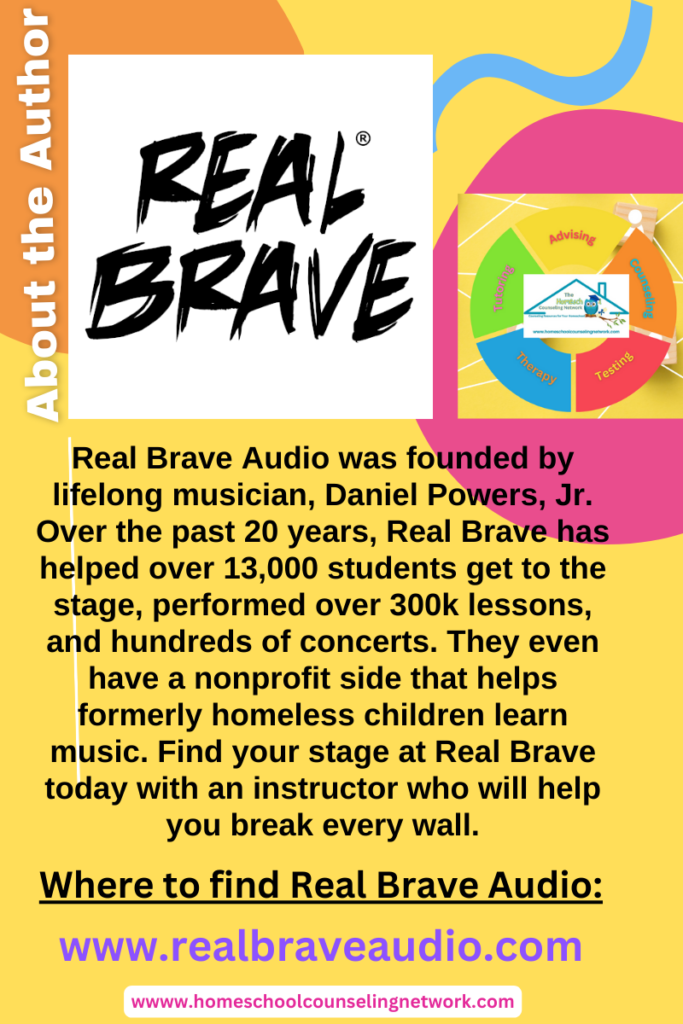
Want To Write For Us?
Learn more about how you can become a guest blogger for The Homeschool Counseling Network here.
Let’s Keep In Touch
Be sure you do not miss a blog post by signing up for our newsletter or joining our Facebook group.
Blessings,
Kimberly Bennett, LPC
Founder/CEO It’s Only Homeschooling
Founder/CEO The Homeschool Counseling Network
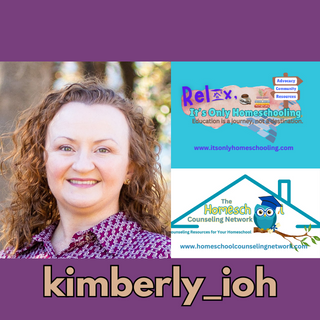
This website is not a professional counseling website and nothing here should be construed as professional counseling advice. Although Kimberly Bennett, LPC is a Licensed Professional Counselor, she is not your counselor, and no counselor-client relationship is established unless she has signed an agreement with you. All information provided through this website is for informational and educational purposes only.
